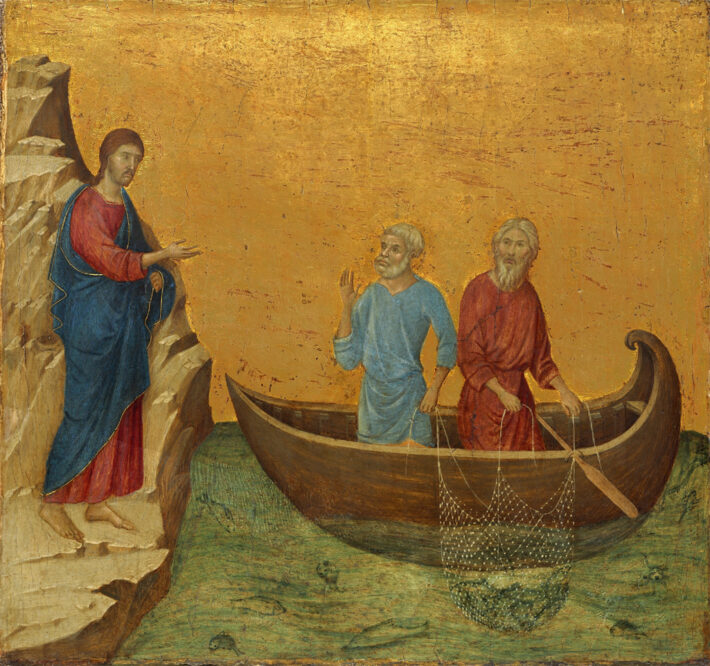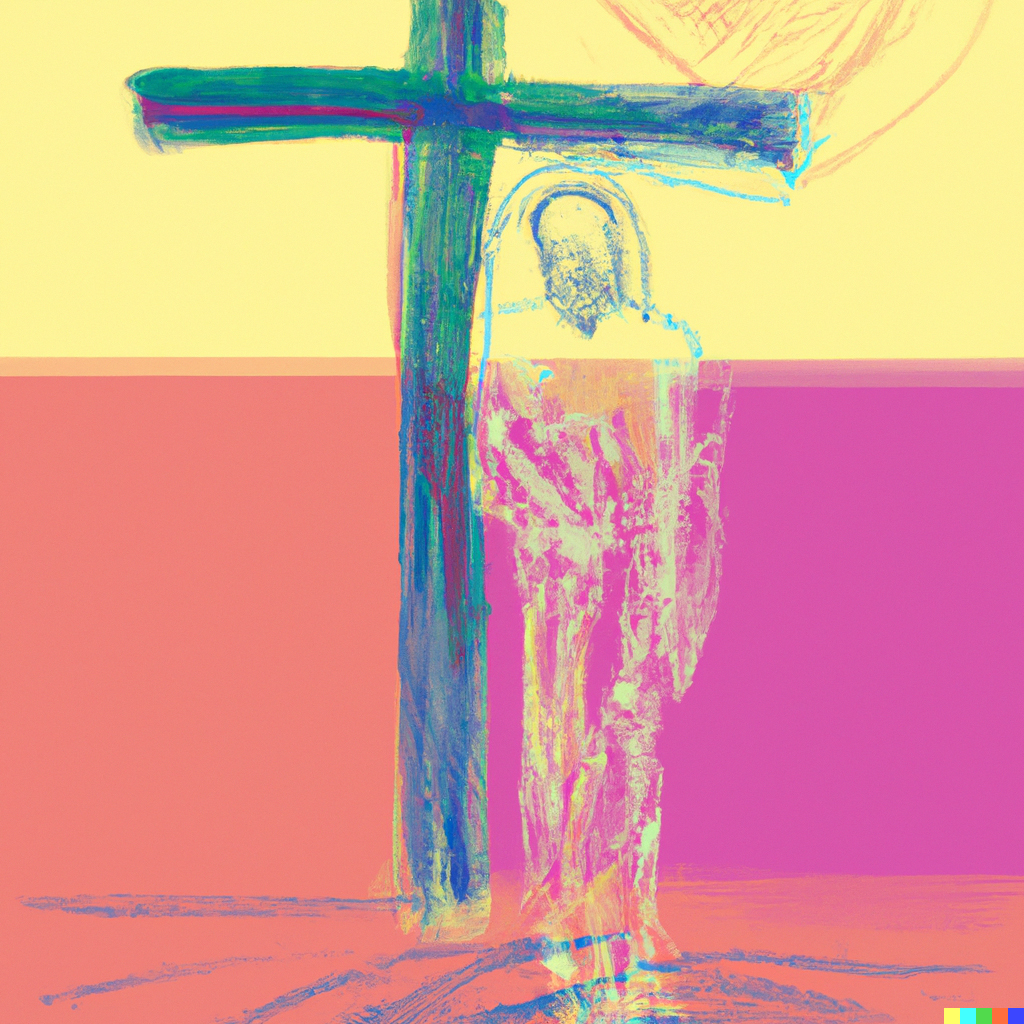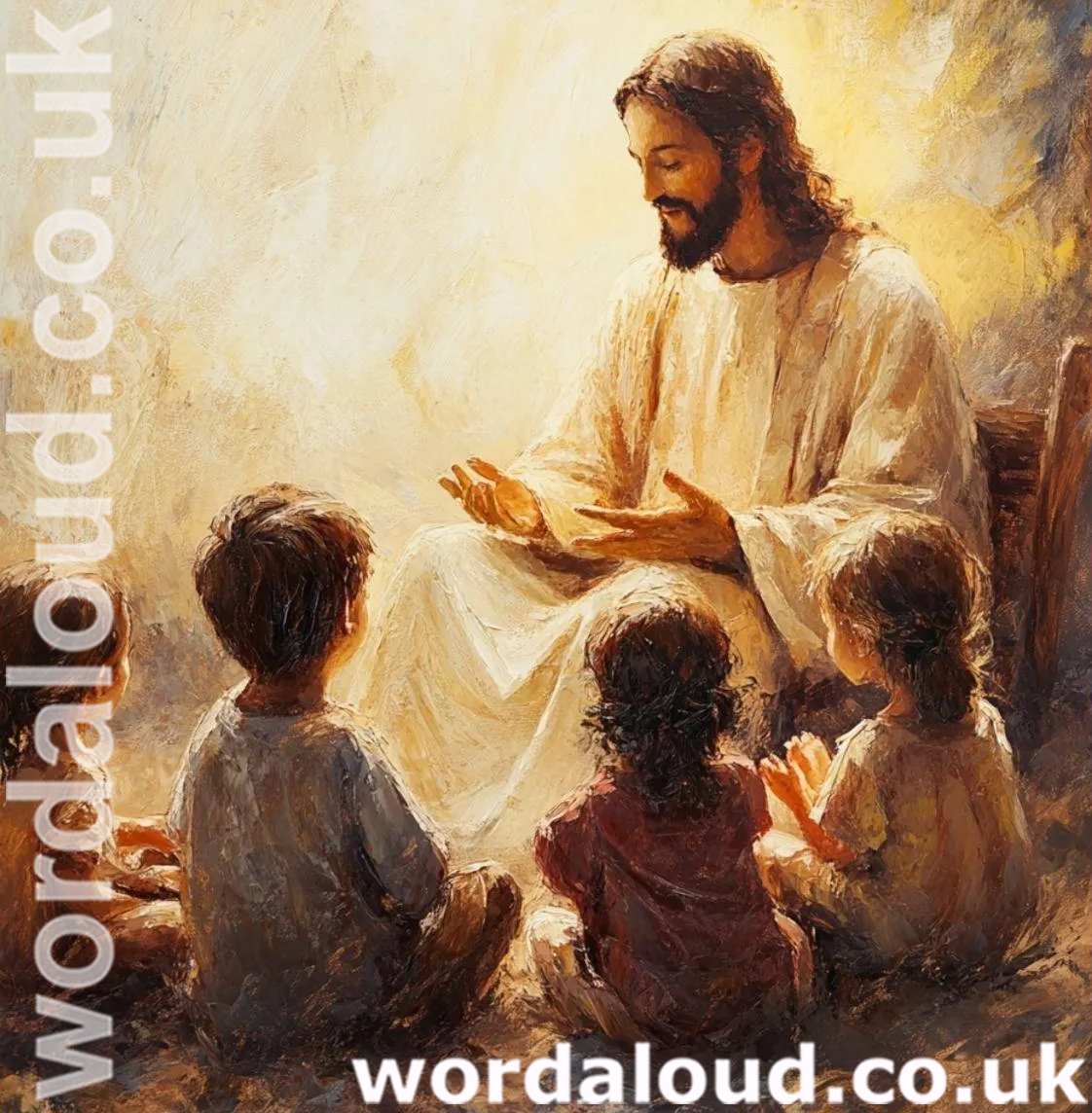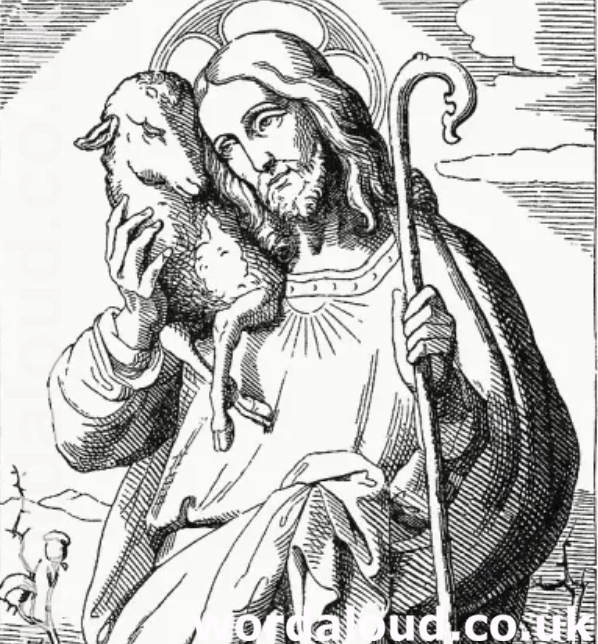Christian Art | Jesus And The Way Of Poverty
Mark 10: 28-31 – Week 8 Ordinary Time, Tuesday | King James Audio Bible KJV, Spoken Word
28 ¶ Then Peter began to say unto him, Lo, we have left all, and have followed thee.
29 And Jesus answered and said, Verily I say unto you, There is no man that hath left house, or brethren, or sisters, or father, or mother, or wife, or children, or lands, for my sake, and the gospel’s,
30 But he shall receive an hundredfold now in this time, houses, and brethren, and sisters, and mothers, and children, and lands, with persecutions; and in the world to come eternal life.
31 But many that are first shall be last; and the last first.
Jesus has told the rich young man that, to be perfect, he must do more than obey the commandments; additionally, he must give everything away and follow Jesus; he must sell it all, give the money to the poor, and pursue a life of total gratuity with Jesus.
This, then, is the way of perfection, to give away all our attachments to material possessions and to follow God. Peter says to the Lord that this is what he and the other Apostles have done. They have unencumbered themselves, shedding the burdens of property and status to be as fully as they possibly can be with Jesus.
Jesus tells the disciples that those who give away their home and their land and their relatives will receive a hundredfold more than they have given away in return. This is in this time. There is the heavenly reward, and more than this, prior to this, there is the great increase in possessions which comes from having everything in common, sharing everything. If I and ninety nine other people share with each other everything we have, my possessions have increased a hundredfold.
Jesus warns us, though, that with this giving away of worldly attachments, there will come persecutions. Such is the world. Those who are strongly attached to the status that comes with material wealth will look with contempt on those who do not value such riches. It may be too that those with their sights set on riches will count themselves strong and exploit those they consider to be weak. We must be prepared for this, knowing that, in the true scheme of things, this value system will be overturned and the last shall be first.
We are, then, called to unencumber ourselves, to confess our sins and let our attachment to those go, releasing ourselves to love God fully, with our whole being.
‘And even if I would not confess to you, what could be hidden in me, O Lord, from you to whose eyes the deepest depth of man’s conscience lies bare? I should only be hiding you from myself, not myself from you. But now that my groaning is witness that I am displeasing to myself, you shine upon me and I delight in you and love you and yearn for you, so that I am ashamed of what I am and renounce myself and choose you and please neither you nor myself save in you.’ St Augustine
![]()
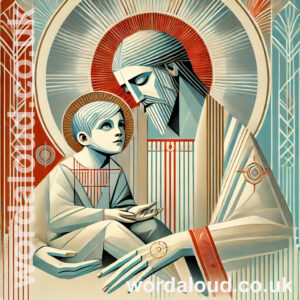
King James Audio Bible | Spoken Word | Endnotes
The Way Of Poverty: A Biblical Perspective
Mark 10:28-31 records an interaction between Jesus and his disciples regarding the cost of discipleship: ‘Then Peter began to say unto him, Lo, we have left all, and have followed thee. And Jesus answered and said, Verily I say unto you, There is no man that hath left house, or brethren, or sisters, or father, or mother, or wife, or children, or lands, for my sake, and the gospel’s, But he shall receive an hundredfold now in this time, houses, and brethren, and sisters, and mothers, and children, and lands, with persecutions; and in the world to come eternal life.’
In these verses, Jesus is teaching his disciples the importance of following, even if it means leaving behind everything they have. Jesus promises that those who do so will receive a hundredfold reward in this life and eternal life in the world to come. This promise is not a guarantee of material prosperity, but rather a reward for those who trust in Jesus and follow his way, regardless of the cost.
Throughout the Bible, there are numerous examples of those who chose the way of poverty and self-denial in order to follow God. Abraham left behind his home and family to follow God’s call to a new land (Genesis 12:1-4). Moses gave up his position as a prince of Egypt to lead the Israelites out of slavery (Hebrews 11:24-27). The prophet Elijah lived in the wilderness and was fed by ravens (1 Kings 17:2-6). John the Baptist lived in the wilderness and wore clothing made of camel’s hair (Matthew 3:4). The apostles gave up their jobs and livelihoods to follow Jesus (Matthew 4:18-22).
In the New Testament, poverty is not necessarily seen as a virtue in and of itself, but rather as a means to an end. The goal is not to be poor, but rather to be free from the love of money and possessions, so that we can focus on serving God and others (1 Timothy 6:6-10). Jesus himself lived a life of poverty, owning no possessions and depending on the generosity of others (Matthew 8:20; Luke 8:3).
Throughout Christian history, there have been many who have embraced the way of poverty as a means of following Christ more closely. Saint Francis of Assisi is perhaps the most well-known example. Saint Francis gave up his wealth and status as a wealthy merchant to live a life of poverty and service to others. Saint Francis founded the Franciscan order, which continues to this day, and inspired countless others to follow his example.
Other religious orders, such as the Benedictines and the Cistercians, have also embraced a life of poverty as part of their monastic tradition. In the Protestant tradition, the Anabaptists were known for their commitment to simple living and rejection of material wealth. The Quakers also embraced simplicity and frugality as part of their faith.
In the Catholic tradition, poverty is one of the evangelical counsels, along with chastity and obedience. These counsels are seen as ways of living out the call to follow Christ more closely. Poverty is not just about giving up material possessions, but also about cultivating an attitude of detachment and trust in God.
Pope Francis has been a vocal advocate for the poor and marginalized, calling for a ‘poor church for the poor’. Pope Francis has spoken out against the idolatry of money and called on Christians to live a life of simplicity and solidarity with the poor.
The way of poverty need not be a call to literal destitution, but rather a call to be detached from material possessions and to trust in God’s provision. This way of life allows us to focus on serving God and others, rather than accumulating wealth for ourselves. It is a challenging way to live, but it is also a rewarding one, as we experience the joy of living in communion with God and others.
Ultimately, the way of poverty is not about us, but about following Christ. As the Apostle Paul wrote: ‘For ye know the grace of our Lord Jesus Christ, that, though he was rich, yet for your sakes he became poor, that ye through his poverty might be rich.’ (2 Corinthians 8:9) Jesus himself lived a life of poverty and self-denial, and Jesus calls us to follow him in this way. As we do so, we will discover true riches of a life lived in obedience to God.

